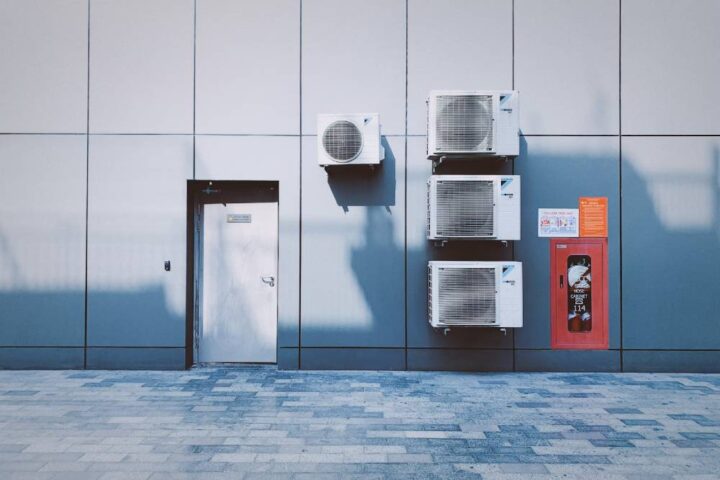Analyzing the ROI of Air Conditioning Upgrades: An Overview
In the midst of surging summer temperatures and rising energy costs, homeowners and industry professionals are turning their focus to the realm of air conditioning upgrades. Such enhancements are not merely a matter of comfort but can also represent a substantial financial decision with long-term implications. Evaluating the Return on Investment (ROI) of these upgrades is crucial to making informed and sound choices.
The pursuit of upgrading one’s air conditioning system is not without merit. The advantages extend beyond the individual confines of a household; they contribute to broader environmental goals as well. Knowing how to analyze and improve the energy efficiency of homes through air conditioning upgrades is an important step in promoting sustainable living.

Improved Energy Efficiency
An air conditioning system upgraded to a more energy-efficient model impacts not only the overall energy consumption but also plays a pivotal role in reducing the carbon footprint associated with cooling needs.
To truly understand the magnitude of these benefits, one must consider the unique Energy Efficiency Ratio (EER) and Seasonal Energy Efficiency Ratio (SEER) ratings — standards that measure the cooling output relative to the energy consumed and offer a baseline for energy conservation efforts.
Furthermore, advanced features such as programmable thermostats, variable-speed fans, and smart home integration not only tailor the cooling experience to individual needs but also prevent energy wastage by optimizing the operation times and cooling intensity based on real-time environmental inputs. It is through these intelligent design elements that upgraded air conditioning systems pave the way for not only immediate financial savings but also for a more sustainable and environmentally considerate approach to climate control within the domestic sphere.
Addressing Aircon Leakages
Persistent leakages in air conditioning systems often signify underlying issues that can lead to significant efficiency loss and increased wear on system components. Properly diagnosing the cause of these leaks is imperative. Causes can range from simple concerns like clogged drain lines to more severe problems like refrigerant leakage.
For instance, refrigerant leaks not only diminish the overall performance of an air conditioning system but also present an environmental hazard, releasing harmful substances into the atmosphere. Solutions involve both immediate actions like sealing leaks and preventive measures like regular maintenance checks performed by certified professionals.
Namely, the professionals from 338 Aircon suggest that homeowners and businesses ensure that their air conditioning systems are functioning at optimal levels by scheduling routine maintenance checks and promptly addressing any signs of leakage. After the professionals leave, it is vital to follow up on their suggestions and address any underlying concerns to maximize energy efficiency. Fixed leakages contribute significantly to preventing further wear on the system and play a crucial role in preserving its longevity.
Reduced Energy Costs
The confluence of reduced energy costs as a result of air conditioning upgrades is not just a symptom of improved technology but a testament to progressive engineering achievements. Securing a modern air conditioning system denotes an investment in durability and operational economy, extending beyond a lower electricity bill. The strategic enhancements engineered into these systems allow for precise calibration of energy output, which harmonizes with the specific cooling needs of a space.
This precision not only translates to monetary savings but also underlines a commitment to the judicious use of energy. Homeowners who undertake such upgrades immerse themselves in a cycle of continual savings, as the reduced load on electricity not only lowers immediate expenses but also diminishes the wear and tear on the unit itself, slowing down depreciation and extending its functional lifespan.
Increased Property Value
Investing in high-quality air conditioning systems not only enhances daily living but also serves as a strategic contribution to the property’s market value. Prospective buyers are increasingly attuned to the energy efficiency and operational cost of household systems. Homes that boast updated, eco-friendly air conditioning technology are positioned more favorably in the real estate market, imbuing them with a competitive edge.
This edge not only speaks to a home’s modern amenities but also its readiness to meet stringent energy standards, thereby attracting environmentally conscious buyers. Upgraded systems, therefore, play a significant role not just in the immediate comfort and efficiency of a home but in fortifying its long-term financial viability and appeal as a sustainable investment.
Energy Savings and Efficiency Improvements
Energy savings and efficiency improvements are more than just beneficial outcomes; they are essential targets for a sustainable future. To this end, a comprehensive approach to air conditioning upgrades can lead to substantial energy savings by integrating high-efficiency equipment with proper insulation and sealing techniques.
These improvements not only drive down energy consumption but also ensure that the system operates under optimum conditions with minimal loss of cooling effectiveness. Coupling these technical enhancements with user education about thermostat settings and proper maintenance schedules can compound the energy savings achieved.
Homeowners thus become integral players in the energy efficiency narrative, acting on the knowledge they have gained to make smarter, more eco-friendly choices. This holistic approach to upgrading not only propels individual homeowners towards significant cost savings but also aligns with global efforts to reduce energy usage and curb climate change.
All in all, the journey towards an efficient, cost-effective, and environmentally sustainable air conditioning system is not merely a luxury but a necessity in the contemporary landscape. The upgrades discussed herein are not just enhancements; they are critical responses to the challenges of energy consumption, environmental impact, and economic pressure.
As homeowners and industry professionals work together to improve and maintain these systems, they not only enhance the personal comfort of individual households but also contribute to the broader societal goal of energy conservation and responsible environmental stewardship. It is through informed decisions, such as investing in high-efficiency air conditioning systems and adhering to regular maintenance regimes, that we can all play a part in shaping a more sustainable future.


